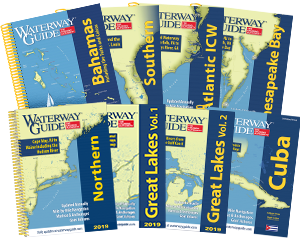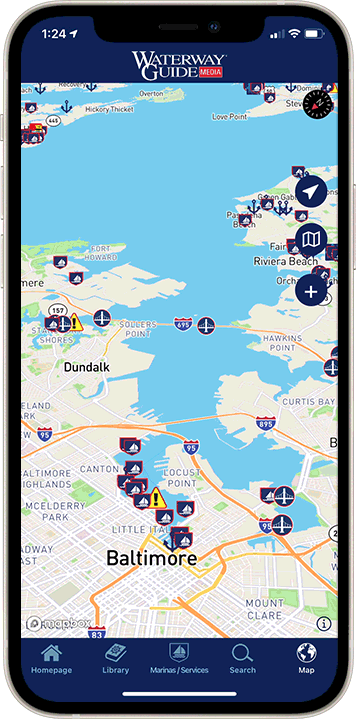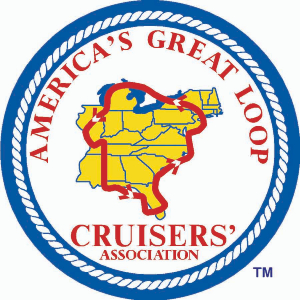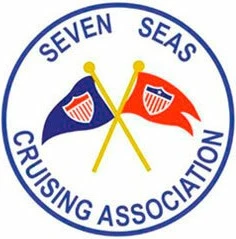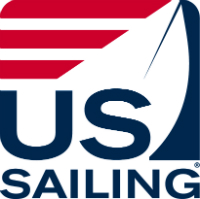![]() If you thought that the extension of Florida's Anchoring and Mooring Pilot Program meant that new regulations would be put off until 2017, think again.
If you thought that the extension of Florida's Anchoring and Mooring Pilot Program meant that new regulations would be put off until 2017, think again.
Last week's public meeting hosted by the Florida Fish and Wildlife Conservation Commission was the first workshop in an effort to draft a legislative proposal allowing Florida municipalities to enact anchoring ordinances before the Pilot Program ends – perhaps as soon as this winter.
I had a long conversation with Capt. Tom Shipp and Capt. Gary Klein of FWC yesterday, as I try to understand why FWC would open up this process before the Pilot Program is over (I was not able to attend the meetings). “This was part of the plan…we’re just moving more quickly” than we had expected, said Capt. Shipp, the coordinator of the Pilot Program.
Remember back in April – those last-minute amendments tacked on to the bill that included the extension of the pilot program? Although the amendments were voted down, certain municipalities not participating in the Pilot Program have kept the pressure on – they want the ability to draft their own ordinances to make anchoring near private residences illegal, and they want it now. “If we didn’t step into this void, we would not as likely end up” with an acceptable outcome, said Capt. Klein, who is heading up this new, parallel effort to draft guidelines for legislation.
Despite the constitutional problems with municipalities regulating anchoring in navigable waters, several may soon try to push through a new law which could quickly take us back to what Claiborne Young called the “wild west” of anchoring regulations – rules often changing from county to county, and many citations and fines (at least until the law is challenged and thrown out again). Capts. Klein and Shipp hope that working through this new process to "finally find consensus" will give the municipalities some control without adding hardship to the responsible boating community. Klein said that the idea is to use Florida Statute 327.46 - Boating-restricted areas as a general framework.
Representatives from BoatUS and Seven Seas Cruising Association (SSCA) were among the 30-35 participants (both of these organizations are strong advocates for the boating community and, in my opinion, deserve our support). Other participants included legislative and law enforcement representatives.
There are other important pieces to the framework of guidelines, including time limitations, setbacks from marine infrastructure, proof of pump-out, and identification of derelict and pre-derelict vessels, but I’ll cover only the residential setback in this article (I’ll cover more in future articles).
What is the definition of “near” private residences? Senator Christopher Smith of Broward County in his argument for the amendment suggested that 300 feet is too close: "There are boats sitting outside of people's houses…boats within 100 yards, looking into people's houses, discharging waste, doing all kinds of things in that city's water."
Let’s take a look at the Senator’s county, home of Ft. Lauderdale – the “Yachting Capital of the World” – which was well-represented at last week's meeting.
Broward County runs from about ICW Mile 1050 Deerfield Beach to Mile 1074 at Hallandale Beach, and each of its roughly dozen anchorages are small areas surrounded by mostly residential property. A 300-foot setback rule would effectively make it illegal to anchor almost everywhere in the county.
 What is a “reasonable” setback from a residential property or private dock? Most prudent skippers anchor as far as practical from docks, seawalls and other boats, but crowded anchorages (like those in Broward County) often require closer quarters. Is there a setback amount that works? Yes: 0 feet.
What is a “reasonable” setback from a residential property or private dock? Most prudent skippers anchor as far as practical from docks, seawalls and other boats, but crowded anchorages (like those in Broward County) often require closer quarters. Is there a setback amount that works? Yes: 0 feet.
We’ve all probably experienced the “boat’s too close” illusion in an anchorage. A short trip in the dinghy reveals that your vessel is actually over 100 feet from what you thought might be too close. So, should we use 100 feet for the setback? No…because the same illusion happens from land (probably more so).
Regardless of the setback number used, certain homeowners will think your boat is too close, then call the police, who will then investigate and explain to the homeowner that the boat isn’t too close. (You would think that local law enforcement would push for no setbacks for the same reason; however, a contingent of them at the meeting reportedly suggested some of the larger numbers.) And let's be real – the only setback that would satisfy many of these homeowners is "infinity."
Why don’t we stay at marinas every night? Fort Lauderdale has some of the finest marina facilities in the world, and there are some I can highly recommend; however, a marina stay is not always practical for every cruiser, whether for financial reasons (and Ft. Lauderdale marinas tend to have some of the highest rates), the added hassle after a long day’s journey, or simply the preference of having a little space for oneself.
According to Klein and Shipp, two more public meetings will be scheduled very soon – one on Florida's East Coast and other on Florida's West Coast, details to come. They also said that the FWC will solicit comments via the internet for those who cannot attend the meetings (details to come).
Anyone who would like to preserve our anchoring rights in Florida should stay tuned and get involved in this process.
Here is the press release from Captain Gary Klein of the Florida Fish and Wildlife Conservation Commission about last week’s meeting:
In response to increasing concerns between local governments and boaters related to anchoring in state waters within local jurisdictions, the Florida Fish and Wildlife Conservation Commission (FWC) conducted a public meeting in Tallahassee on July 21-22, 2014, to discuss anchoring issues and potential ways forward to resolve the conflicts.
Attended by interested persons representing the boating industry, resident and visiting boaters and local and state governments, the two-day meeting focused on complex issues.
“Protecting the rights of people to use the waters kept in public trust by the state is very important,” said Lt. Colonel Jack Daugherty. “We all want to keep Florida a boater-friendly state and maintain that great part of the Florida lifestyle and economy. On the other hand, local governments have the duty to respond to the needs of their citizens. We are committed to a robust dialogue and to seeking balance between boating interests and local governments in an effort to identify points of consensus and to help resolve some of these issues.”
This year, Florida’s Legislature extended the Anchoring and Mooring Pilot Program, which was authorized in 2009 to look for solutions to these problems, for three additional years in order to allow for more time to test various anchoring strategies and to engage stakeholders in exploring possible legislative solutions. During the public meeting, a framework for potential future anchoring legislation was discussed along with several draft regulatory provisions based on components of the pilot program, each aimed at solving or minimizing specific anchoring challenges.
FWC staff will draft language based on comments from this meeting, distribute that language to interested parties and hold at least two additional public meetings to further refine a possible legislative proposal. Meeting notices and reference documents will be posted by mid-August on FWC’s Anchoring and Mooring web page, found at http://myfwc.com/boating/anchoring-mooring.
Related Articles:
UPDATE: Both Florida anchoring amendments are rejected!
Florida anchoring/mooring pilot program asks for 3-year extension

